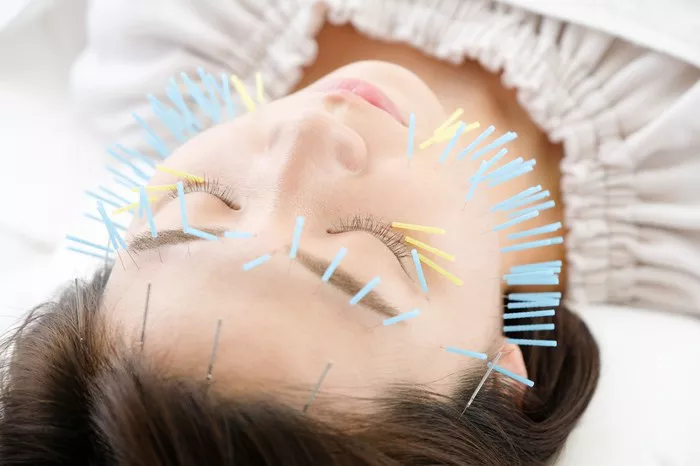In recent years, probiotics have gained significant attention for their health benefits, particularly in digestive health. However, their potential benefits extend beyond the gut. Probiotics, which are live microorganisms that provide health benefits when consumed in adequate amounts, have also shown promising results in the field of skincare. The growing interest in probiotics for skin health has led to numerous studies exploring how these beneficial bacteria can improve various skin conditions, promote a balanced microbiome, and enhance overall skin appearance.
The skin is the body’s largest organ, and just like the gut, it is home to its own complex ecosystem of microorganisms, collectively referred to as the skin microbiome. A healthy balance of good and bad bacteria on the skin plays a vital role in maintaining its health. Disruptions to this balance, such as from environmental stressors, harsh skincare products, or poor diet, can lead to skin problems such as acne, eczema, rosacea, and premature aging. Probiotics, when applied topically or ingested, can help restore and maintain this balance, leading to healthier, more resilient skin. This article will explore the role of probiotics in skincare, how they work, the benefits they provide, and how to incorporate them into your skincare routine.
Understanding the Skin Microbiome
Before diving into the benefits of probiotics for skincare, it’s important to understand the skin microbiome. The skin is home to trillions of bacteria, fungi, and viruses that form a complex ecosystem. These microorganisms are essential for maintaining skin health. The skin microbiome plays a critical role in defending against harmful pathogens, regulating the immune system, and promoting wound healing. A well-balanced microbiome ensures that the skin remains protected and functions optimally.
However, when the balance of these microorganisms is disrupted—due to factors such as pollution, stress, poor diet, or overuse of antibiotics—the skin becomes more susceptible to conditions like acne, eczema, and other inflammatory skin issues. This is where probiotics come into play. By introducing beneficial bacteria to the skin, probiotics can help restore balance to the microbiome and support skin health.
The Mechanisms of Probiotics in Skin Care
Probiotics influence the skin’s health in several ways. The key to their effectiveness lies in their ability to interact with the skin’s microbiome, strengthen the skin’s natural barrier, and regulate immune function. Probiotics can be applied topically in skincare products like creams, serums, and masks, or taken orally in the form of supplements or probiotic-rich foods. In both cases, the goal is to enhance the skin’s natural defenses and improve its overall function.
Strengthening the Skin’s Barrier
The skin’s barrier is the outermost layer of the skin, which acts as a protective shield against environmental pollutants, toxins, and harmful microorganisms. When the skin barrier is compromised, it can lead to dryness, irritation, and inflammation. Probiotics help reinforce this barrier by stimulating the production of ceramides, which are lipid molecules that help retain moisture and protect the skin from harmful agents.
Studies have shown that probiotics can promote the production of these protective lipids, which help the skin retain hydration and maintain its barrier function. This is especially beneficial for people with dry, sensitive skin or those suffering from conditions like eczema and psoriasis, where the skin barrier is often impaired.
Reducing Inflammation
Chronic inflammation is one of the primary causes of many skin issues, including acne, rosacea, and eczema. Probiotics have anti-inflammatory properties that can help calm the skin and reduce redness, swelling, and irritation. By interacting with the immune system, probiotics can help regulate inflammatory responses, leading to clearer and healthier skin.
Research suggests that probiotics can influence the production of certain cytokines, which are proteins involved in the immune response. By balancing cytokine levels, probiotics can prevent excessive inflammation, which is a common contributor to skin conditions like acne and rosacea.
Balancing the Skin Microbiome
Just as probiotics help restore balance in the gut microbiome, they can also restore balance to the skin’s microbiome. An imbalance in the skin’s bacterial flora can lead to an overgrowth of harmful bacteria, such as Propionibacterium acnes, the bacterium responsible for acne. By introducing beneficial bacteria, probiotics can crowd out harmful microbes and promote the growth of skin-friendly bacteria. This balance is key to preventing infections, reducing acne outbreaks, and maintaining overall skin health.
In addition to preventing harmful bacteria, probiotics also help maintain the skin’s pH balance. The skin’s natural acidity (pH around 4.5–5.5) is essential for its protection against external threats. Probiotics help stabilize the pH level, preventing it from becoming too alkaline or too acidic, which could compromise the skin’s defenses.
The Benefits of Probiotics for Skin Care
The incorporation of probiotics into skincare products or routines can offer a wide array of benefits, addressing multiple skin concerns. Whether you struggle with acne, eczema, aging, or general skin health, probiotics can help support and enhance your skin’s appearance and function.
Probiotics for Acne
One of the most well-known skin concerns that probiotics can help with is acne. Acne is often caused by an imbalance of bacteria on the skin, which leads to clogged pores and inflammation. Probiotics can help combat this by restoring a healthy balance of bacteria, preventing the overgrowth of acne-causing bacteria like P. acnes. Additionally, probiotics can reduce inflammation and redness associated with breakouts.
Several studies have found that topical probiotics, when applied to acne-prone skin, can significantly reduce the frequency and severity of breakouts. Probiotics can also help reduce the formation of blackheads and whiteheads by preventing the clogging of pores.
Probiotics for Eczema and Psoriasis
Eczema and psoriasis are chronic inflammatory skin conditions characterized by dry, red, and itchy patches of skin. These conditions are often triggered by an imbalance in the skin microbiome and an overactive immune response. Probiotics can help alleviate symptoms by reducing inflammation, improving the skin barrier function, and promoting hydration.
Research has shown that certain strains of probiotics, when taken orally or applied topically, can reduce the severity of eczema flare-ups and soothe irritated skin. Probiotics can also help prevent further skin damage by restoring balance to the microbiome and supporting the skin’s natural defenses.
Probiotics for Anti-Aging
Probiotics are also increasingly being included in anti-aging skincare products. The skin ages due to a combination of internal and external factors, including collagen breakdown, sun damage, and oxidative stress. Probiotics can help fight these signs of aging by reducing inflammation, promoting collagen production, and improving the skin’s moisture retention.
By enhancing the skin’s ability to repair itself and fight environmental damage, probiotics can help maintain a youthful appearance, reduce the appearance of fine lines and wrinkles, and promote skin elasticity. Regular use of probiotic-enriched products can result in smoother, more radiant skin over time.
Probiotics for Sensitive Skin
Sensitive skin is prone to redness, irritation, and allergic reactions, often caused by external irritants or harsh skincare products. Probiotics are especially beneficial for sensitive skin because they help reduce inflammation and strengthen the skin barrier. By promoting a balanced microbiome, probiotics protect the skin from environmental stressors and reduce the likelihood of irritation.
Using probiotics in skincare products can help restore the skin’s tolerance to external factors and reduce the risk of allergic reactions. Probiotic-based products are gentle on the skin, making them ideal for individuals with sensitive or reactive skin.
How to Incorporate Probiotics Into Your Skincare Routine
There are several ways to incorporate probiotics into your skincare routine, depending on your preferences and skin concerns. Probiotics can be applied topically through creams, serums, masks, or lotions, or they can be consumed orally through probiotic supplements and probiotic-rich foods.
Topical Probiotics
Topical probiotic skincare products contain beneficial bacteria or fermented ingredients that can be directly applied to the skin. These products are designed to target specific skin concerns, such as acne, eczema, or premature aging. Look for products that contain strains of probiotics known for their skin benefits, such as Lactobacillus, Bifidobacterium, or Streptococcus thermophilus.
To use probiotic skincare products, apply them to clean, dry skin, and follow up with a moisturizer to lock in hydration. Be patient, as it may take several weeks of consistent use to see noticeable results.
Oral Probiotics
Oral probiotics, typically taken in the form of supplements or probiotic-rich foods like yogurt, kefir, and fermented vegetables, can also benefit the skin by promoting a healthy gut microbiome. Since the health of the gut and skin are closely connected, taking probiotics orally can help improve skin conditions from the inside out.
It’s important to choose a high-quality probiotic supplement that contains strains with proven benefits for skin health. As with topical probiotics, consistency is key—taking probiotics daily can help improve overall skin health and prevent flare-ups of skin issues.
Conclusion
Probiotics play a vital role in skincare by supporting a healthy skin microbiome, reducing inflammation, enhancing hydration, and addressing various skin conditions such as acne, eczema, and signs of aging. Whether applied topically or consumed orally, probiotics can provide significant benefits, helping to restore balance and promote healthier, more resilient skin. As more research is conducted, the full potential of probiotics in skincare will continue to unfold, making them an essential ingredient for anyone looking to improve their skin health.
Related Topics






























